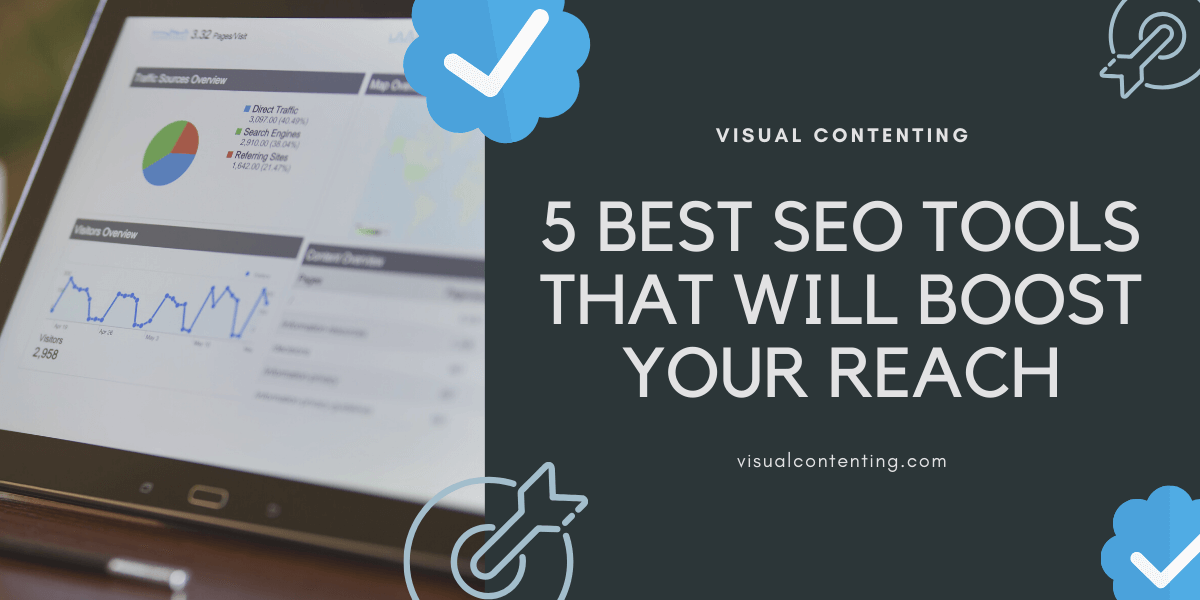In the ever-changing climate that is Google, keeping your SEO updated is an absolute necessity.
Any marketing agency will tell you that SEO is necessary for organic traffic, building credibility, reach and aiding the overall growth of your business; it can’t be neglected.
Your website can be the best and brightest and yet still go unnoticed by search engines unless you optimise your pages according to the latest algorithms - which can undergo up to 1000 changes per year.
Top Tip: it might seem a little overwhelming, but it pays (sometimes literally) to stay up to date with the latest Google updates. Ad Espresso is a great place to find regular, detailed and digestible information about all things Google.
SEO can be a bit of a minefield, so you need to have a strategy.
Luckily, there are tons of resources and tools available that will help you navigate your SEO and boost your business.
An SEO strategy is sort of a beast of its own but is definitely beneficial in the long-term. If you need some guidance, Backlinko sets out a great strategy for upgrading your SEO.
The first step? Keywords.
The tool? SEMrush.
SEMrush
If you have an idea of the keywords that might be relevant to your business, entering them into SEMrush is the best place to start building up your bank of keywords.
SEMrush offers you a great selection of other relevant keywords that link to the ones you have entered. Although they probably won’t all be exactly what you’re looking for, it can be the perfect helping hand to get you started.
Just cherry-pick your favorites!
SEMrush is great if you’ve got yourself a starting point but if you are totally new to the game and unsure where to begin we recommend Keywords Everywhere.
Keywords Everywhere
Keywords Everywhere is a browser extension that automatically pulls keywords from the search engine results page.
All you need to do is type a search term into Google that works for your business, and this handy plugin will pull up keywords and some key metrics including monthly search volumes and average CPC.
Keywords Everywhere is really handy if you’re not sure about which keywords are most relevant to your business as you can search your competitors, chart which search terms bring up the sorts of results that your business fits into and pull keywords from there.
Once you’ve got a bank of keywords that you’re certain are relevant to your business, you’ll want to check the performance of those keywords.
Here we need our trusty Google Keyword Planner.
Google Keyword Planner
Found in your Google Ads account, the Google Keyword Planner will reveal all the most important data about your chosen keywords.
You’ll be able to find everything from monthly search volumes to first-page bid prices and whether or not there’s high competition for your keywords.
In terms of keywords, this is the last stage in deciding your finalists.
All these tools are designed to help you expand the reach of your businesses by showing you how to target the right keywords.
The right keywords will bring the right audience members which will increase the likelihood of those members engaging with your content and spreading the word or purchasing!
A combination of these three tools is probably the most beneficial if you’re starting your SEO from scratch. However, if you’re upgrading a pre-existing website you can get most of the information you need from the Google Keyword Planner.
You have the option to enter the URL of a website from which Google will pull potential keywords. From here you can choose the most relevant terms and catalogue their information.
And there’s no reason that you should limit yourself to checking your own URL.
We highly recommend scoping out the competition.
Check out what sort of thing is on the first page when you search for any of your chosen keywords, have a little scroll and see if you pick up on any patterns - some are more common than others.
Let’s say you’re a vegan dessert brand.
When you search ‘vegan desserts’, you’ll likely find a lot of the following search results…
- “top 5 vegan desserts”
- “15 no-bake vegan desserts”
- “10 vegan desserts you have to try this month”.
This is an extremely common pattern, but it’s one that works as people are drawn to lists, the number stands out and appeals to the eye.
Finding out about patterns like this gives you guidance for your content. You want to create something similar… but even better.
And while you’re doing your digging, you’ll want to find out more than merely the type of content that is trending.
You’ll want to know how Google rates this content.
This is where Moz comes in.
Moz
Moz is a marketing analytics tool designed to help businesses track and manage numerous elements of SEO such as…
- Audience Analysis: once you’ve got your website up and running, Moz can tell you how much traffic you’re getting and where it’s coming from i.e. organic, paid or social media.
- Site Rankings: Moz can also help you track how you rank for certain keywords, as well as how other websites rank for those keywords, so you can get a clear idea of where you sit in comparison to your competitors.
- Site Auditing: Moz also offers a site audit tool that crawls your website in search of problems and immediately notifies you if any are found.
All this from a little browser extension… we can’t fault it.
The benefit of knowing how your competitors are ranking is so you know which pages Google views as authoritative.
When Google recognises your page as an authority, you will be able to expand your reach and really take advantage of this all-powerful search engine.
That’s why reducing the number of errors on your website is so vital, and why Moz is so great.
Oh, and as well as crawling your website for errors, Moz also crawls your website for opportunities.
A sure-fire way to boost your authority and therefore boost your reach is link building.
Commonly known as backlinks, these are a little like online-recommendations whereby the websites with numerous links are viewed by Google as having high authority.
Link building is one of the three most important ranking factors in SEO according to Google and it’s one of the best ways to expand your reach.
It’s important to note that trustworthy websites tend to link to trustworthy websites, while spammy websites tend to link to spammy websites.
With that in mind, it’s important to know who’s linking to your website which is where our fourth favourite SEO tool comes into play.
SurferSEO
SurferSEO is a great tool to use for performing backlink audits of your website.
Just insert your website URL into SurferSEO to create a query and you will be presented with your backlink analysis. This will show you any referring domains and URL’s that are linking to your website in their content.
You can then work through this list, assess their domain authority and check out whether or not they are legitimate links - it’s quite common for new websites to get linked by spammy sites, so this is a really important step in your SEO.
SurferSEO will also tell you whether or not the links to your site are do-follow or no-follow links.
Simply put, a no-follow link is a link that won’t boost your SEO ranking, SERP placement or your reach. You can think of these links as having a sticker on them that tells Google to ignore them, hence ‘no-follow’.
Do-follow links, by comparison, are links that tell Google to follow them and assess the website they are linking to.
Do-follow links allow your content to be ‘seen’ by Google, so these are the links you should be aiming to secure in order to successfully expand your reach.
Now, onto our final tool.
Our trusty Google Analytics.
Google Analytics
We can’t stress enough how important SEO is.
67% of all clicks go to the first five organic results in a search engine, so you need to be up there.
Google Analytics is an essential tool for tracking your SEO efforts because it groups together all the most important information in one interface.
You can check your best-performing keywords and best-performing landing pages and use this information to promote and create better-performing content.
Plus, GA tells you all the ways in which you can further optimise all your content, whether it’s doing well or not by tracking things like….
- Pageviews
- Bounce rate
- Pages per session
- Session time
- CTR
And tons more.
You can also check which search terms are bringing up your ads which is vital to ensure you are reaching the correct audience.
Say you’re an office cleaning service but your search terms show that your ads are showing up for people looking for job opportunities as office cleaners. You’ll know that you need to make some changes to your keywords and exclude any that might link you to job opportunities.
We like to think of Google Analytics as the hub. This is where all your information lives, so learn how to read it and check it often.
In Conclusion
When it comes to tools to help with your SEO, we’ve only touched the surface.
But these are the tools that we recommend you use if you’re looking to ease some of the legwork and boost your reach.
The most important thing to remember is that SEO is a marathon, an ongoing job.
So staying current and making regular updates is best-practice.
And using these tools will just give you that extra hand either with getting started or with keeping going.
Related Posts

Tom Welbourne is the Director & Founder of The Good Marketer, a Digital Marketing Agency in London which works with Small Businesses to drive more traffic, generate conversions and increase sales.






